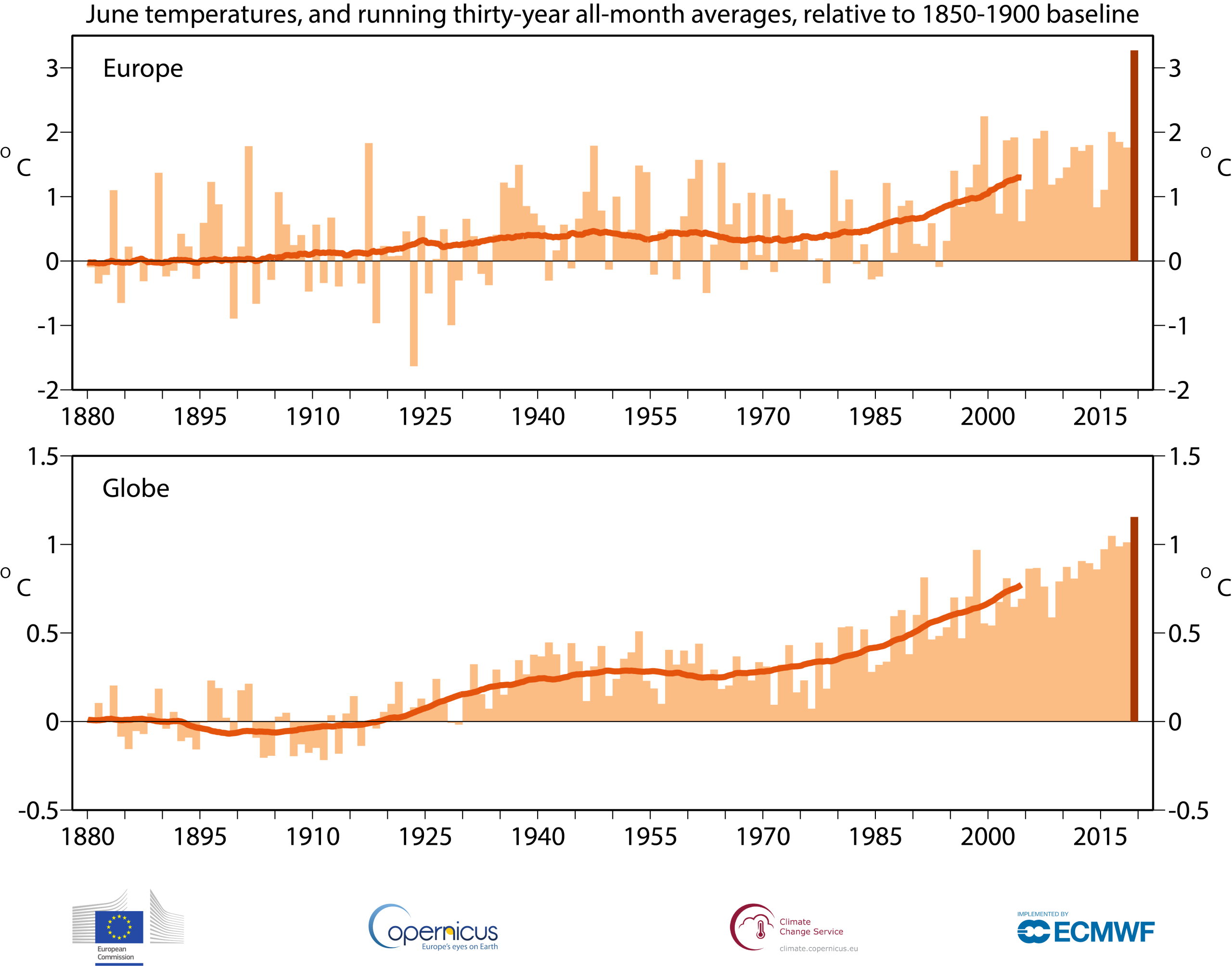A sweltering heat wave continues to scorch much of Europe, triggering an “unprecedented” number of heat alerts across France and affecting numerous countries in southern and eastern Europe.
In France, 84 out of 96 mainland departments are currently under orange alert – the country’s second-highest warning level. Climate Minister Agnès Pannier-Runacher described the situation as “unprecedented.”
Heat warnings have also been issued across Spain, Portugal, Italy, Germany, the UK, and several Balkan nations including Croatia. Emergency medical services remain on high alert, urging people to stay indoors and hydrated.
Spain and Portugal experienced their hottest June days on record over the weekend. In El Granado, Andalucía, temperatures soared to 46°C on Saturday. In Portugal, the central town of Mora recorded 46.6°C on Sunday.
Across France, nearly 200 schools have either fully or partially shut down. Education Minister Elisabeth Borne said she was coordinating with regional authorities on how best to protect school children, adding that parents who can, should keep their children at home.
In the southern Corbières mountain range, several forest fires broke out on Sunday, leading to evacuations and the closure of a motorway. Fire authorities confirmed on Monday that the blazes had been contained.
Meanwhile in Italy, 21 cities – including Rome, Milan, and Venice – are on red alert, as is the island of Sardinia. Emergency rooms across the country have seen a 10% rise in heat stroke cases, according to Mario Guarino, vice president of the Italian Society of Emergency Medicine.
Parts of the UK may record one of their hottest June days ever, with temperatures expected to reach 34°C or more in areas of England.
In Seville, Spain, the extreme heat has taken a toll on residents. “I can’t sleep well and have insomnia. I also get heat strokes, I stop eating and I just can’t focus,” 21-year-old Anabel Sanchez told Reuters.
Seven districts in Portugal, including Lisbon, are on the highest alert. The German Meteorological Service has warned that temperatures in Germany could reach nearly 38°C by Tuesday and Wednesday, which would be another record.
In the Balkans, temperatures have started to ease slightly but remain dangerously high. In Turkey, wildfires continue to burn, with one major fire in the Seferihisar district near Izmir destroying about 20 homes and forcing evacuations.
In Croatia, wildfires have also erupted along the coast, prompting severe heat warnings. Greece is battling near 40°C temperatures, with blazes near Athens last week destroying homes and triggering mass evacuations.
Serbia reported its hottest day ever on Wednesday, while Sarajevo in Bosnia and Herzegovina hit a record 38.8°C on Thursday.
In Slovenia, the hottest June temperature on record was set on Saturday. Skopje, North Macedonia’s capital, saw temperatures reach 42°C on Friday and similar figures are expected to persist.
Beyond health impacts, the heatwave is also affecting the environment. In the Adriatic Sea, warmer waters are attracting invasive species like the poisonous lionfish. Alpine glaciers, already shrinking at alarming rates, are under further stress.
While scientists caution that individual weather events are hard to directly attribute to climate change, the frequency and intensity of heatwaves are increasing due to global warming.
(BBC)
Provided by SyndiGate Media Inc. (
Syndigate.info
).







